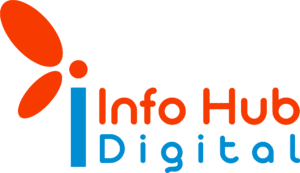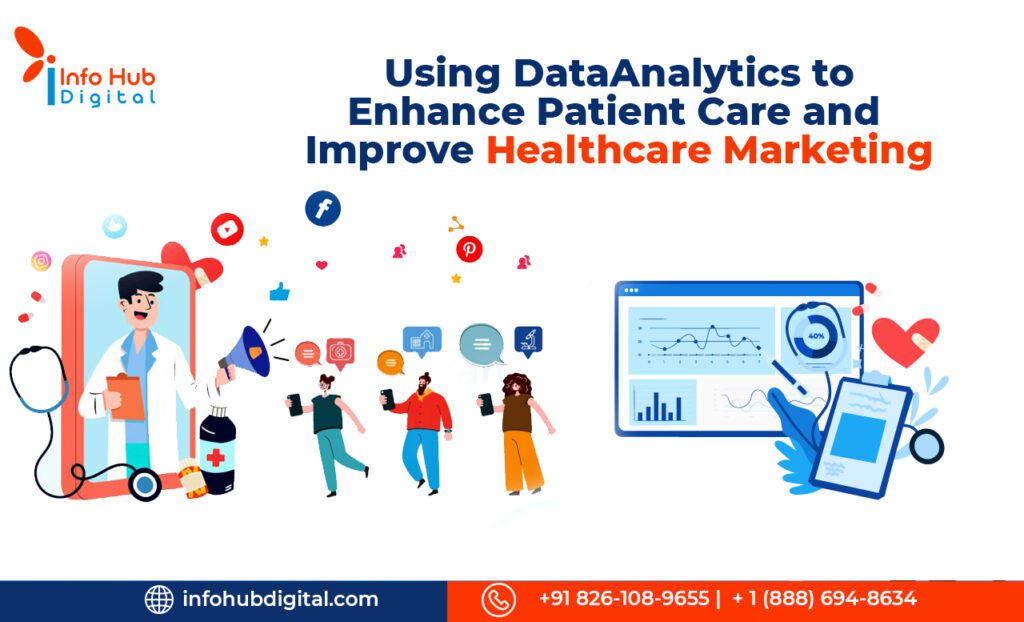In the ever-evolving landscape of healthcare, data analytics has emerged as a powerful tool to enhance patient care and improve healthcare marketing. The convergence of technology and data has opened up new possibilities for healthcare providers and marketers to gain valuable insights into patient needs, optimize treatments, and target marketing efforts effectively. This article delves into the realm of data analytics in healthcare, exploring its impact on patient care and marketing strategies.
Table of Contents
Understanding Data Analytics in Healthcare
Data analytics in healthcare involves the systematic analysis of vast amounts of healthcare data to extract meaningful insights and patterns. It encompasses various techniques and tools to transform raw data into actionable information. By harnessing the power of data analytics, healthcare organizations can uncover hidden trends, make informed decisions, and improve patient outcomes. This includes leveraging data from electronic health records, medical devices, wearables, and other sources.
Enhancing Patient Care through Data Analytics
- Predictive analytics for early detection and prevention
In the realm of patient care, data analytics plays a crucial role in predictive analytics. By analyzing historical patient data and identifying patterns, healthcare providers can predict the likelihood of disease onset or deterioration. This enables early detection and prevention strategies to be implemented, reducing the overall burden on healthcare systems. By identifying high-risk patients, medical professionals can proactively intervene and design personalized treatment plans. - Utilizing data for evidence-based decision making
Data analytics also empowers evidence-based decision making in healthcare. By analyzing large datasets, healthcare providers can identify patterns and correlations that aid in diagnostics and treatment planning. Evidence-based practices result in improved treatment outcomes, reduced medical errors, and enhanced patient safety. - Improving patient experience and engagement
Data analytics can greatly improve patient experience and engagement. By analyzing patient data, including preferences, demographics, and medical history, healthcare providers can tailor care plans to individual needs. This personalized approach enhances patient satisfaction and fosters a deeper sense of engagement. Additionally, data analytics enables better communication channels and remote monitoring, ensuring ongoing support and prompt intervention when necessary.
Improving Healthcare Marketing with Data Analytics
- Market segmentation and targeting
Data analytics revolutionizes healthcare marketing by enabling market segmentation and precise targeting. By analyzing patient data, organizations can identify specific demographics and create targeted marketing campaigns. Customization of marketing strategies enhances engagement, encourages positive brand perception, and drives better patient acquisition. - Analyzing patient behavior and preferences
Understanding patient behavior and preferences is vital for effective healthcare marketing. Data analytics allows marketers to gain insights into patient needs, desires, and decision-making processes. This knowledge helps shape marketing strategies and messaging, ensuring alignment with patient expectations and fostering stronger connections. - Measuring marketing campaign effectiveness
Data analytics enables organizations to measure the effectiveness of their marketing campaigns. By tracking metrics such as click-through rates, conversion rates, and return on investment (ROI), marketers can evaluate the success of their initiatives. This data-driven approach allows for continuous optimization and refinement of marketing efforts for maximum impact.
Overcoming Challenges in Data Analytics Implementation
While data analytics offers immense potential, its implementation comes with challenges that must be addressed:
- Data security and privacy concerns
As healthcare organizations handle sensitive patient data, ensuring data security and privacy is of paramount importance. Robust measures must be in place to protect patient information and comply with regulations such as the Health Insurance Portability and Accountability Act (HIPAA). Encryption, access controls, and regular audits are essential to safeguard patient data. - Integrating data from multiple sources
Healthcare data comes from diverse sources, including electronic health records, medical devices, wearables, and social media. Integrating these disparate data sources presents a technical challenge. Organizations must invest in interoperable systems and technologies to aggregate and analyze data effectively. - Ensuring data accuracy and quality
Data accuracy and quality are critical for meaningful insights and decision making. Data analytics implementation requires ongoing efforts to ensure data integrity, such as data cleansing, standardization, and validation. Regular quality checks and validation processes are necessary to maintain the reliability of the analytics results.
Future Trends in Data Analytics for Healthcare
Looking ahead, several trends will shape the future of data analytics in healthcare:
- Artificial intelligence and machine learning advancements
Artificial intelligence (AI) and machine learning (ML) will continue to advance data analytics capabilities in healthcare. These technologies enable automated data processing, anomaly detection, and predictive modeling, further enhancing patient care and marketing strategies. - The role of big data in healthcare analytics
The proliferation of big data in healthcare will provide a rich source of insights for analytics. The ability to aggregate and analyze vast amounts of data from diverse sources will unlock new opportunities for improving patient care, optimizing resource allocation, and driving innovation. - Ethical considerations and responsible use of data
As data analytics becomes more pervasive in healthcare, ethical considerations must be at the forefront. Organizations must establish ethical frameworks and ensure responsible data governance practices. Transparency, consent, and the protection of patient rights are crucial in maintaining trust and ensuring the ethical use of healthcare data.
Conclusion
At Info Hub Digital, as a leading provider of digital marketing services for healthcare professionals, we harness the power of data analytics to enhance patient care and improve healthcare marketing. Our expert team specializes in market segmentation, patient behavior analysis, and measuring campaign effectiveness. With a focus on data security and privacy, we empower healthcare providers to deliver exceptional patient experiences, optimize treatment outcomes, and drive better ROI. As technology advances, we remain at the forefront of emerging trends, including AI, machine learning, and big data utilization. Join us at Info Hub Digital to unlock the potential of data analytics and shape a future of improved healthcare.







